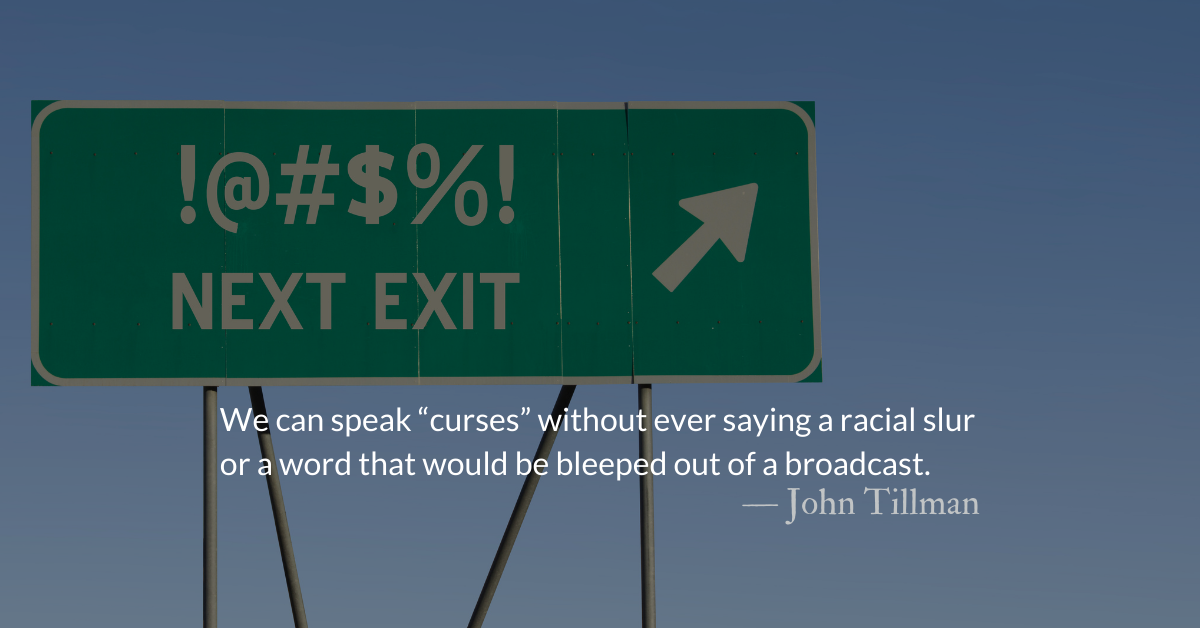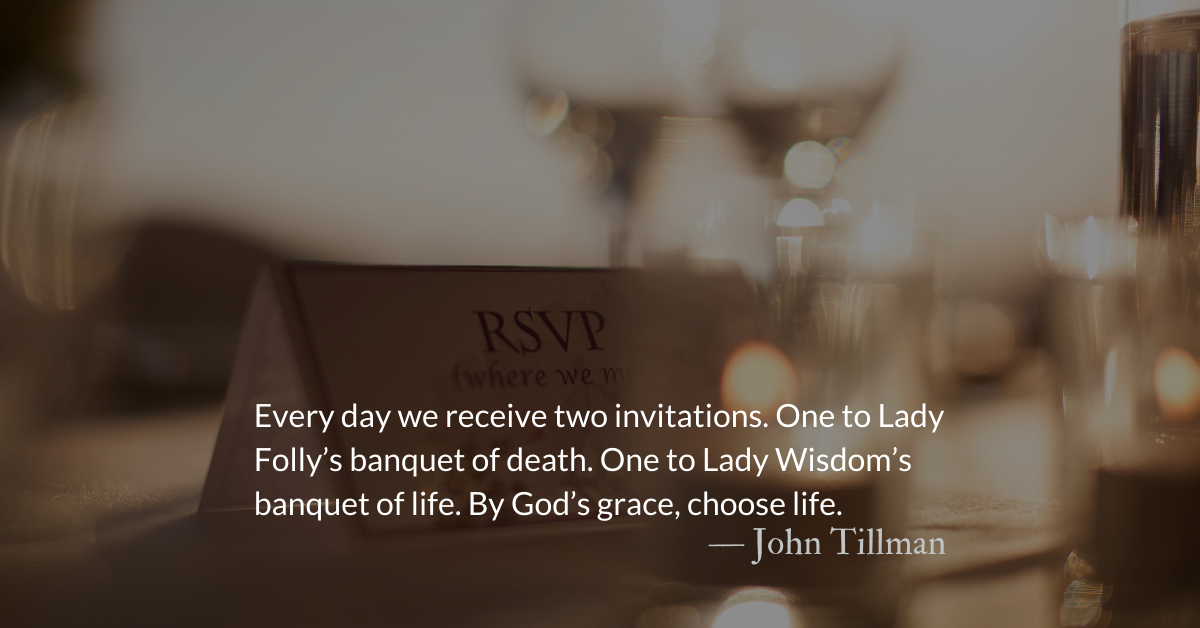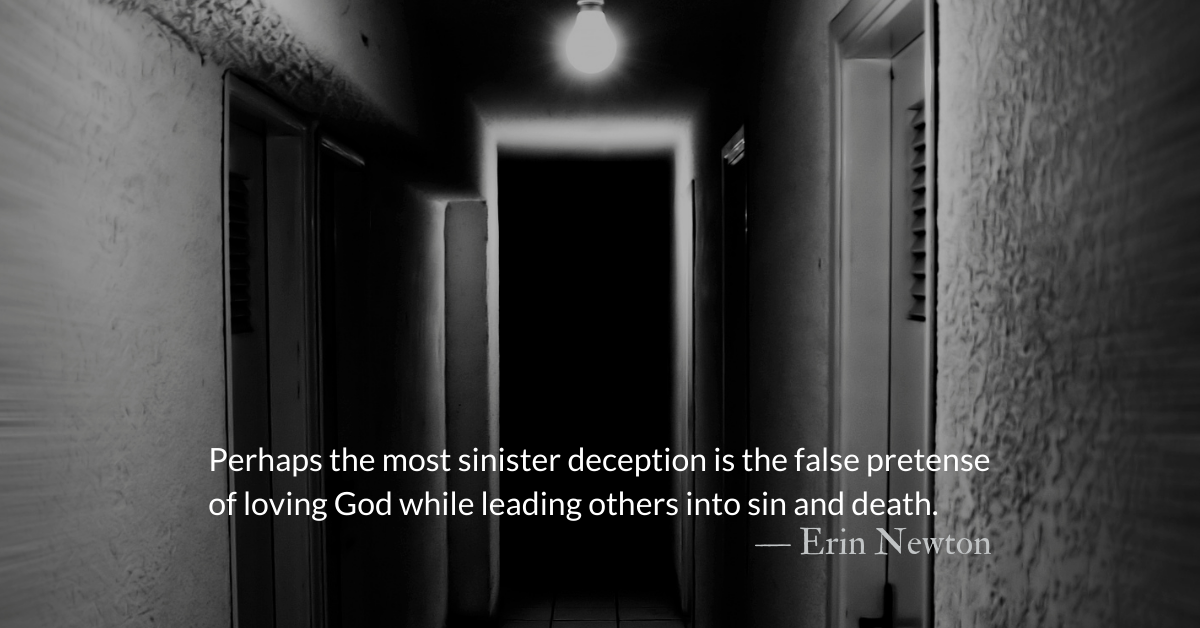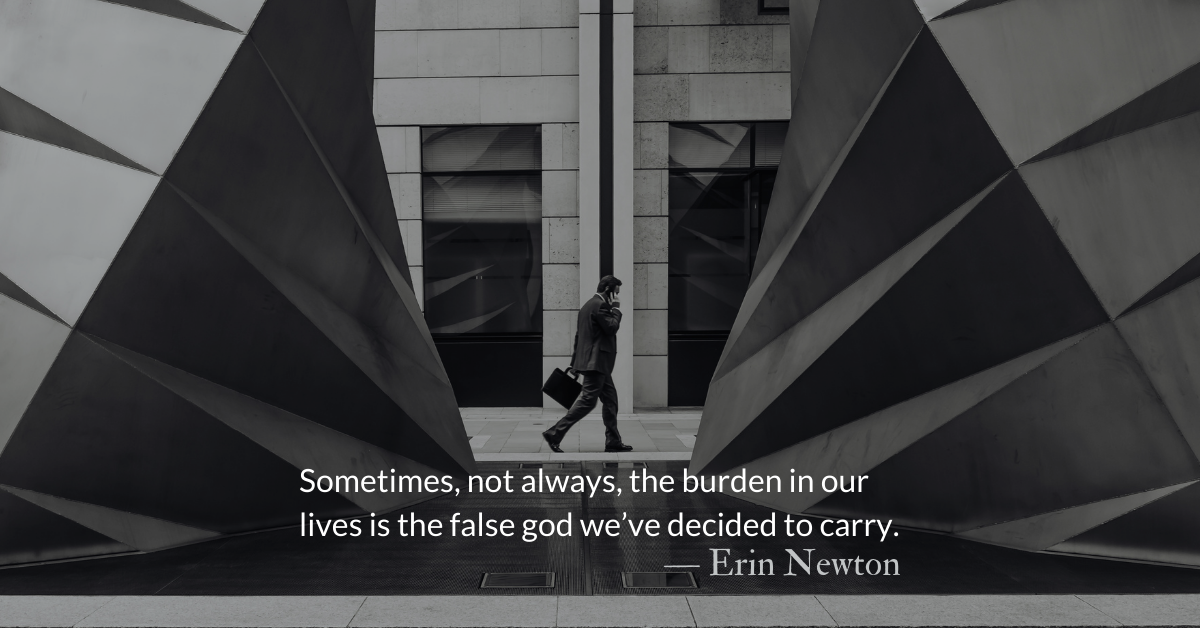Scripture Focus: Proverbs 12.13-20
13 Evildoers are trapped by their sinful talk,
and so the innocent escape trouble.
14 From the fruit of their lips people are filled with good things,
and the work of their hands brings them reward.
15 The way of fools seems right to them,
but the wise listen to advice.
16 Fools show their annoyance at once,
but the prudent overlook an insult.
17 An honest witness tells the truth,
but a false witness tells lies.
18 The words of the reckless pierce like swords,
but the tongue of the wise brings healing.
19 Truthful lips endure forever,
but a lying tongue lasts only a moment.
20 Deceit is in the hearts of those who plot evil,
but those who promote peace have joy.
Reflection: Curses We Speak Curse Us
By John Tillman
Righteous speech matters to God.
Like most people, I was taught that God wanted us to not use “curse words.” “Cussing” was something I commonly confessed or prayed that God would help to eliminate from my life. Avoiding these words was a cultural marker that defined an outward kind of righteousness.
The language of our culture has coarsened over time. Today, “locker room talk” has spilled over into public life. Obscenities are often worn openly on clothing and used in political signs and slogans. Many Christians have abandoned language norms in service of politics. Vulgar attacks of political candidates can be found on bumper stickers in church parking lots on Sunday mornings.
Righteous speech matters more today than it ever has before. It can be an important marker of difference that sets us apart. However, righteous speech, as the Bible describes it, is not so much a change of vocabulary as a change of heart. Scripture condemns words that curse others but nowhere is there a specific list of “curse words.” Even loudly “blessing” someone too early in the morning can be considered a curse. (Proverbs 27.14)
Righteous speech goes beyond avoiding certain words but if eliminating course vocabulary doesn’t make our speech righteous, what does?
The key proverb in this section on speech says that our speech should “fill others with good things.” The connected phrase says that the “work of our hands” will reward us. Words affect work. Speech, whether harsh or helpful, shapes actions.
New revelations this past week about the hate-filled language of Ahmaud Arbery’s killers reveal the regularity of their course language about African Americans. This harshness and cruelty was part of how they thought and felt, and became a part of how they acted. Out of their hearts, these words flowered with poisonous fruit. The “work of their hands” condemned them.
Jesus taught that what comes out of our mouths defiles us. Words come from the heart and this is why they matter. Because of this we can speak “curses” without ever saying a racial slur or a word that would be bleeped out of a broadcast. When we speak hatefully, it doesn’t matter what vocabulary we use, we are cursing.
Curses we speak curse us. Blessings we speak bless us. Let us honor Christ and others with righteous speech that flowers with blessing and not cursing.
Divine Hours Prayer: The Small Verse
Open, Lord, my eyes that I may see.
Open, Lord, my ears that I may hear.
Open, Lord, my heart and my mind that I may understand.
So shall I turn to you and be healed. — Traditional
Today’s Readings
Proverbs 12 (Listen – 3:07)
Psalm 75-76 (Listen – 2:33)
Read more about Praying Priestly Blessings
May we pronounce this priestly blessing not with words alone, but in how we live and walk through our world.
Read more about Becoming a Blessing
Our broken world seeks righteousness.
Bring it through us.
Our lost world seeks truth.
Speak it through us.











